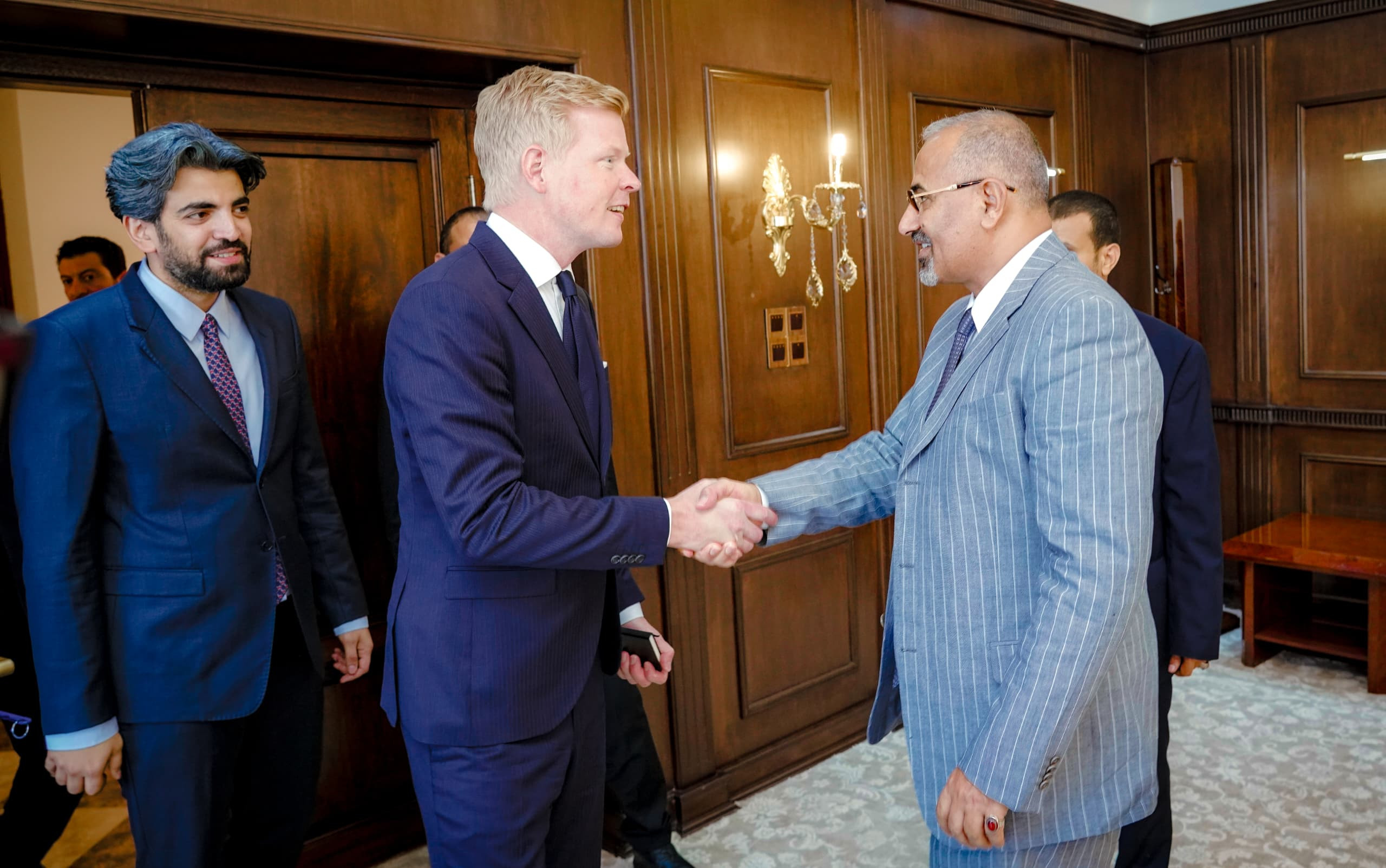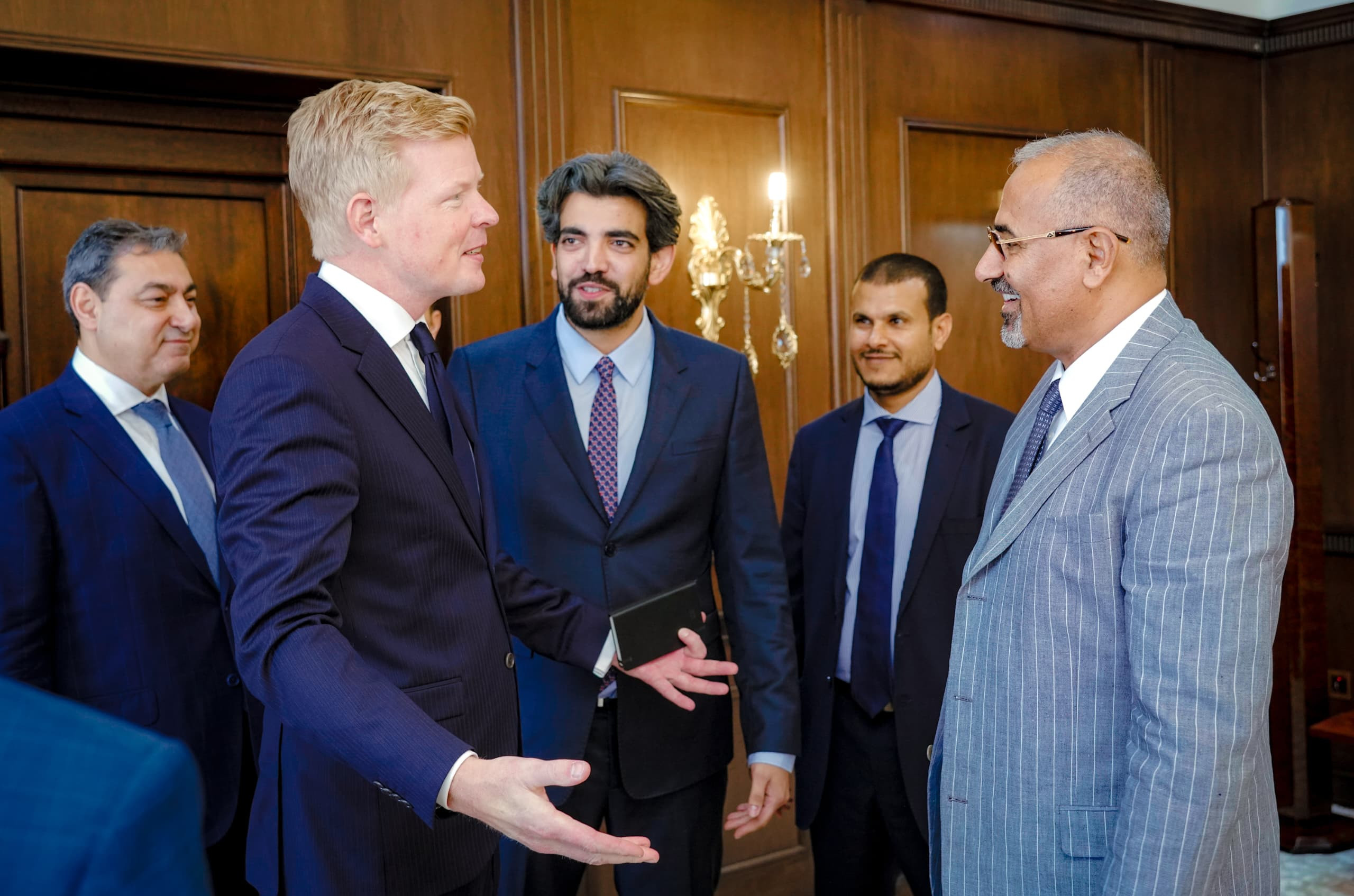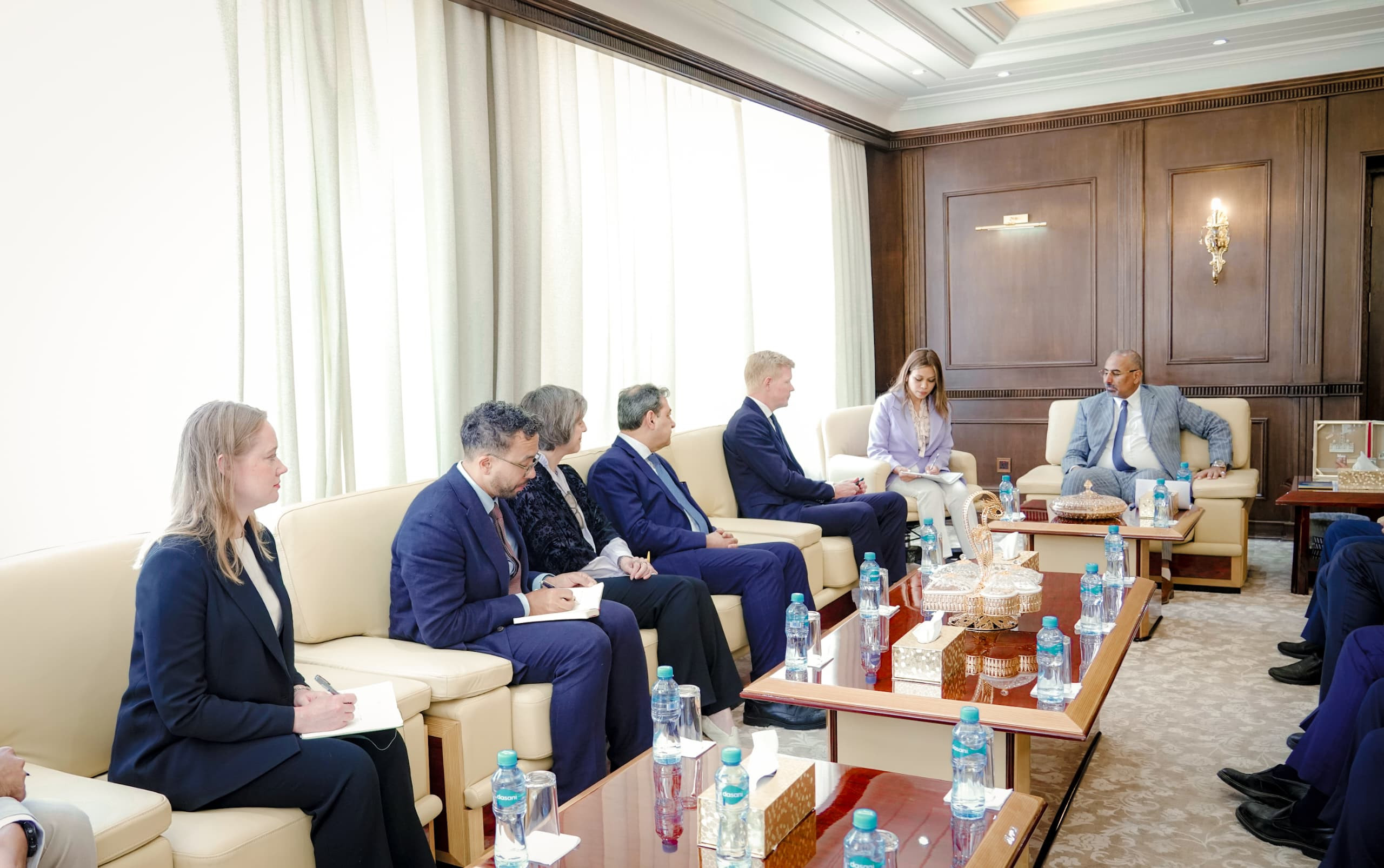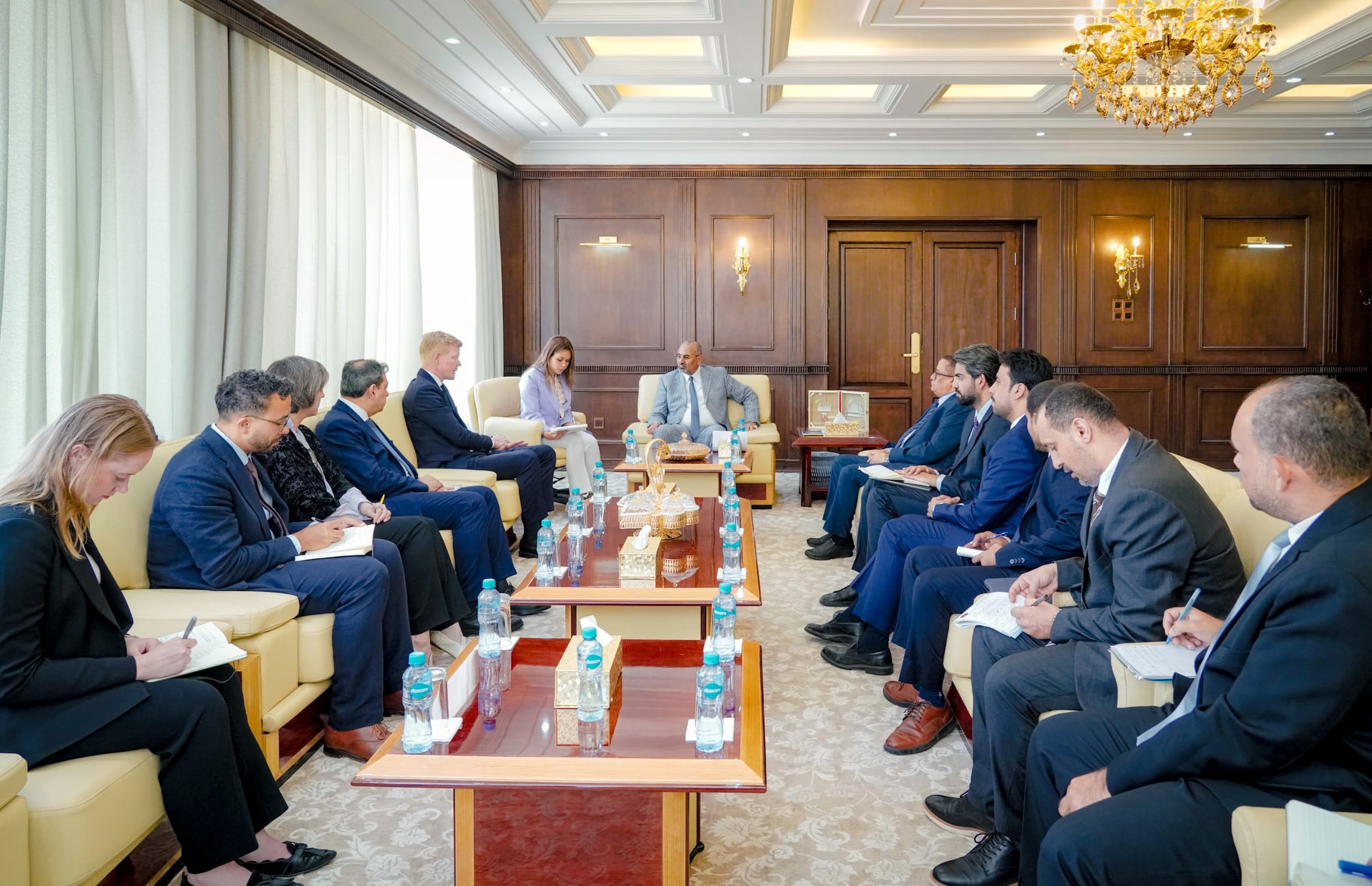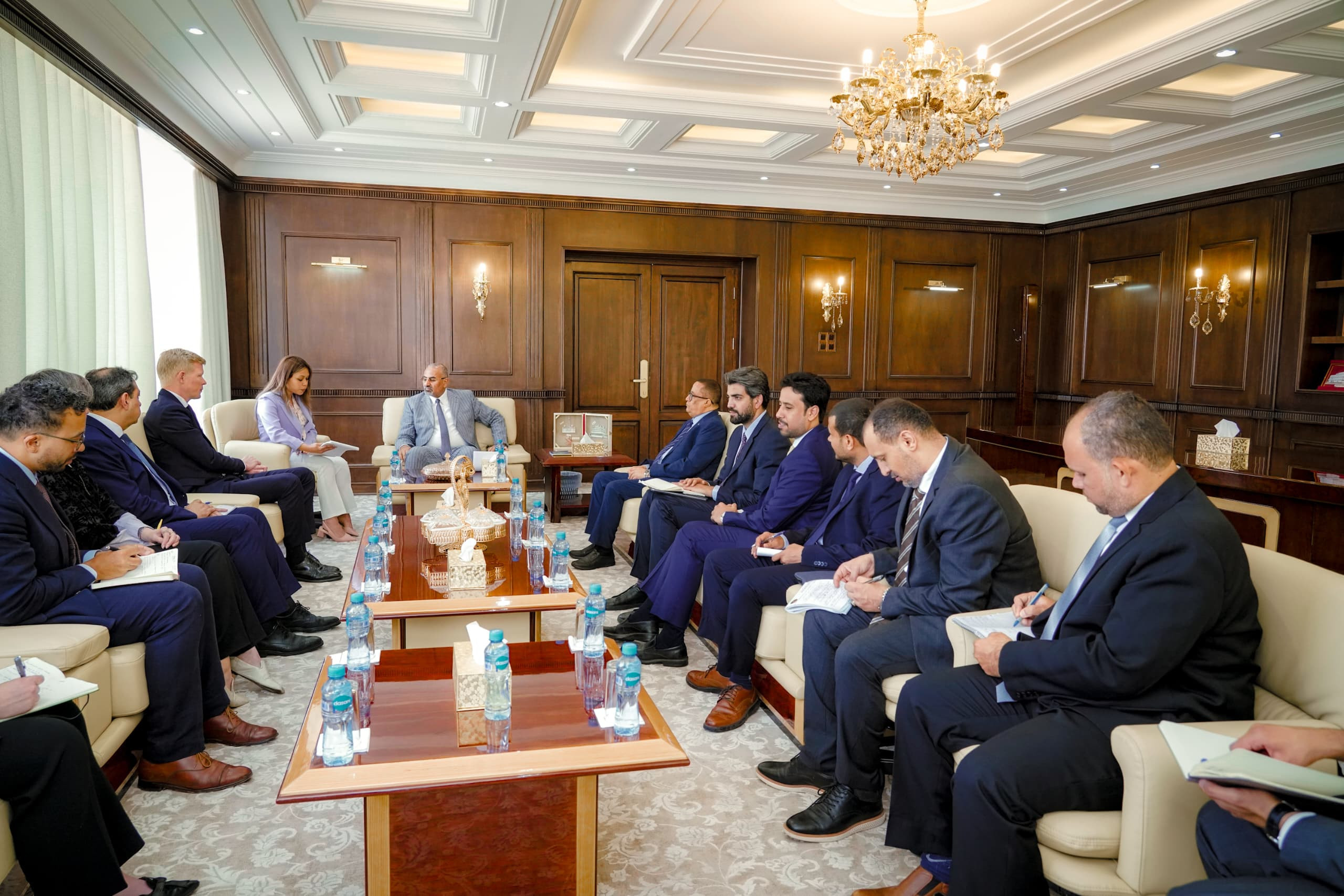Political Declaration Statement Issued by the Southern Transitional Council
Political Declaration Statement Issued by the Southern Transitional CouncilThe Southern Transitional...
President Aidarous Qassem Al-Zubaidi, President of the Southern Transitional Council (STC) and Vice Chairman of the Presidential Leadership Council (PLC), received today, Monday, at the Presidential Palace in Al-Tawahi, in the capital, Aden, the UN Secretary-General's Special Envoy to Yemen, Mr. Hans Grundberg, and his deputy, Mr. Sarhad Fattah.
At the beginning of the meeting, President Al-Zubaidi welcomed Mr. Grundberg, his deputy, and the accompanying tream to the capital, Aden, which comes at a time when the country is experiencing difficult economic and living conditions, praising the great efforts made by the UN special envoy and his team during the past period to create the conditions for launching a political process that ends the war and establishes a comprehensive, just, and sustainable peace in the country.
In this regard, President Al-Zubaidi reaffirmed the positions of the PLC and the STC, which support the peace efforts of the UN and international and regional efforts that are being made to resolve all issues, primarily the cause of the people of the South, within its own negotiating framework stipulated in the outcomes of the GCC consultations, and agreed upon in the PLC.
The President highlighted the need for the positions of the PLC and the STC, which support the peace option, to be paralleled by a position from the other party that is in the same direction, indicating that talking about a political process and a peace agreement in light of the escalation of the Houthi militia in the Red Sea and Bab al-Mandab Strait is unrealistic and useless.
The President pointed out that the ongoing Houthi escalation in the Red Sea and Bab al-Mandab and the unilateral financial measures have exacerbated the economic and humanitarian conditions in the country and have also become a card that the Houthi militia is trying to use to pressure the international community to achieve political gains.
The President emphasized that the peace process has international controls and standards that must be adhered to by all parties, noting in this context that any ceasefire agreement or measures to open roads must be carried out under the supervision of UN monitoring committees to ensure their implementation and success.
For his part, the UN envoy explained that all efforts are currently focused on preserving what has been achieved during the past period, stopping unilateral steps by the Houthi group, and escalatory measures that could take the situation in the country to a catastrophic reality worse than it is today.
The UN envoy confirmed that the recent escalation by the Houthi group in the Red Sea and Bab al-Mandab, the instability in the region, and the entry of new parties into the crisis line have negatively affected the understandings that were reached during previous meetings and added more complexity to the efforts exerted to reach an agreement during the current period.
Mr. Grundberg noted at the end of the meeting that despite the complications that have arisen on the way to resolving the crisis, hopes are still high for reaching an agreement on all important files and issues, at the forefront of which is the cause of the South, expressing his thanks and appreciation to the PLC and the STC for their full cooperation with the efforts made by the United Nations to bring about peace.
The meeting was attended by members of the Presidium of the STC, Mr. Mohammed Al-Ghaithi, Head of the Consultation and Reconciliation Commission (CRC) of the PLC, Mr. Amr Ali Al-Beidh, Special Representative of the President of the STC, Dr. Nasser Al-Khubaji, Head of the Political Commission assisting the Presidium of the STC, Head of the Negotiations Unit in the STC, Mr. Anis Al-Sharafi, Deputy Director of the Foreign Affairs and Expatriates Authority (FAEA), and Mr. Imad Mohammad Ahmed, Director of the Office of the Vice President of the PLC, and from the Office of the UN Special Envoy, Ms. Roxana Bazargan, Head of the Political Section in the Office of the Envoy, and Mr. Edward Jackson, Director of the Office of the UN Envoy in the capital, Aden.
